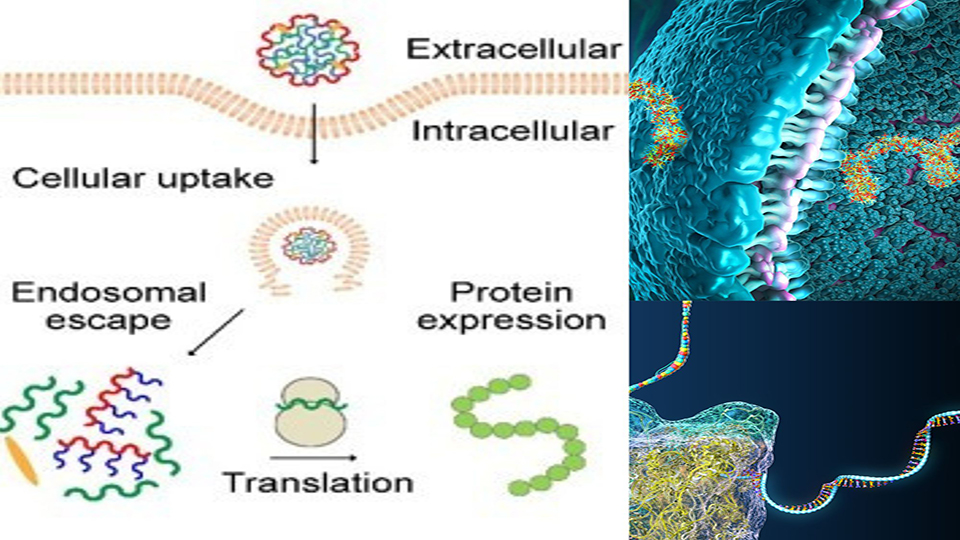NUS Medicine researchers develop safer carrier for cancer vaccines
Published: 06 Dec 2022

Caption: The mRNA delivery process
Lipid nanoparticle (LNP)-based messenger ribonucleic acid (mRNA) vaccines have recently emerged as a promising strategy for the prevention and treatment of cancers, as well as infectious diseases. LNPs are carriers that safely and effectively deliver nucleic acid vaccines, eliciting a strong immune response.
However, despite its high take-up rate in cancer treatment, the common side effects of pain, swelling, and fever, continue to be present, potentially due to inflammatory qualities within the LNPs, that form part of vaccines.
To tackle this issue, Professor Shawn Chen Xiaoyuan, Nasrat Muzayyin Professor in Medicine and Technology, and Director of the Nanomedicine Translational Research Programme at the Yong Loo Lin School of Medicine, National University of Singapore (NUS Medicine), and a team of researchers, have developed potent yet low-inflammatory mRNA cancer vaccine vectors—non-harmful vehicles that deliver the DNA instructions into cells, which in turn trigger protective immunity against the cancer cells. Instead of LNPs, they applied polymers as the carrier for cancer mRNA vaccines.
In the study published on Advanced Materials, Prof Chen and his team synthesised a series of alternating copolymers, which help mRNA cargos deliver into cells, with lower inflammatory responses. In the process, the stability of polymeric nanoparticle (PNP) is maintained, which ensures the efficacy and safety of the vaccine.
Currently, the research team is looking to further studies on this and clinical translation in the next 18 to 24 months. “This vaccine offers a treatment which could better benefit cancer patients by being potentially potent with low side-effects, and we are hopeful about its efficacy,” said Prof Chen.
Read more in the press release here.

